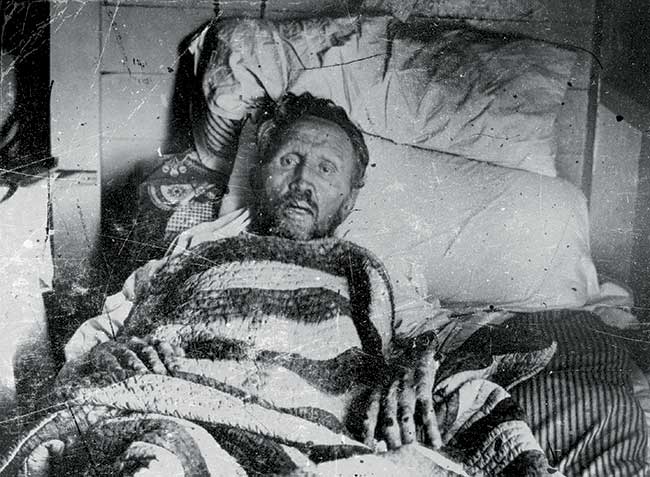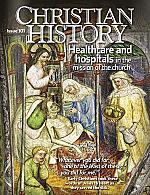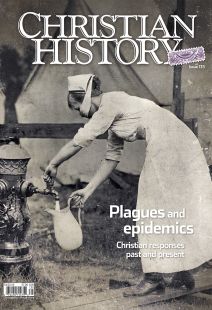“Buried alive”

[Father Damien on his deathbed, resting on his side. Presumably taken by Dr. Sydney B. Swift on Palm Sunday, April 14, 1889 / [public domain] Wikimedia]
Wailing rose from the ship Kilauea as 50 lepers, forever separated from their families, were transported to the isolated peninsula of Molokai. Though the Hawaiian archipelago was blessed in many ways, leprosy (Hansen’s disease, which differs from biblical leprosy) cursed its inhabitants. By 1873, of its 40,000 islanders, 2,000 suffered from the disease and lived apart. Those aboard the ship would join the ranks of the infected, resigned to exile on Molokai’s lonely peninsula.
Aboard this same ship, however, was 33-year-old Catholic priest and missionary Father Damien De Veuster (1840–1889). Insisting, “I am ready to be buried alive with those poor wretches,” he had volunteered to confine himself in Hawaii’s leper colony for the remainder of his life, though he then did not himself have leprosy.
On May 4, 1873, the bishop of the Honolulu diocese, Monseigneur Louis Désiré Maigret, accompanied Fr. Damien (as he would come to be commonly called) onto the beach. Damien had never seen individuals in the late stages of the disease and turned white at the sight of swollen and rotted features. Bishop Maigret offered him a final chance to back out, but Damien declined. He would stick to his word.
“There is no law”
Conditions were deplorable. Old residents said, “In this place there is no law.” Damien set out to change that. As he later described it:
Under the primitive roofs were living pell-mell, without distinction of age or sex, old or new cases, all more or less strangers one to another, those unfortunate outcasts of society. They passed their time with playing cards, hula (native dances), drinking fermented ki-root beer, home-made alcohol, and with the sequels of all this. Their clothes were far from being clean and decent, on account of the scarcity of water, which had to be brought at that time from a great distance. Many a time in fulfilling my priestly duty at their domiciles I have been compelled to run outside to breathe fresh air.
Damien started smoking to mask the bad odors with the smell of tobacco. He also organized a bucket brigade to bring water to the settlement. Later he piped water from a perpetual pool to the settlement’s doorsteps. The son of a Belgian farmer, he was strong, energetic, and practical. He burned the filthiest houses, scrubbed out the rest, and built new ones. He laid out farms and a cemetery, opened a dump, and stopped the production of alcohol.
Most important of all, he taught the people about Christ. Men who had stolen from the dying or flung others into ditches now repented and sought baptism. Eventually Damien would be honored by Hawaiian king David Kalākaua, an act that brought him worldwide fame and also brought a growth in donations of money and supplies for the colony.
Twelve years after Damien came to Molokai, he discovered that his feet had become leprous. Four years later, not yet 50, he died. During his life accusations were leveled at him for associating too closely with the outcasts. In his death, however, the whole world came to acknowledge the nobility of his character, which had forsaken liberty and risked infection to bring hope to a hopeless people.
By Dan Graves
[Christian History originally published this article in Christian History Issue #135 in 2020]
Dan Graves, layout editor at Christian History; adapted from “This Day in Christian History: May 4—Damien Joins Hawaii’s Leper Outcasts”Next articles
Isolation, blessings, and questions
Readers describe their experiences of being faithful to Christ in the time of COVID-19. These reflections were written in March and April 2020.
ReadersPlagues and epidemics: Recommended resources 135
We searched through past CH issues and current academic bibliographies to bring you this list of new and classic books for understanding plague and Christian responses
The editorsOur scattered leaves
We end with another reflection from a member of our staff about how our current moment compares to Christian history
Edwin Woodruff Tait




